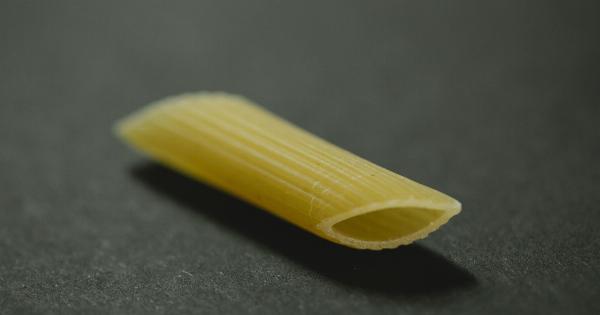When it comes to fertility, many factors play a role, including lifestyle choices, hormones, and genetics. However, one element that often goes unnoticed but plays a crucial role in reproductive health is trace elements.
These minerals, although required in small amounts, are vital for the proper functioning of our bodies, including fertility. In this article, we will explore how one specific trace element can help with fertility and what you need to know about it.
1. Introduction to Trace Elements
Trace elements are minerals that are needed by our bodies in trace amounts, typically less than 100 milligrams per day. These include essential minerals such as zinc, iron, selenium, copper, and many others.
While they may be required in small quantities, their absence or deficiency can have significant health implications, including fertility issues.
2. The Role of Zinc in Fertility
Among the various trace elements, zinc stands out for its vital role in reproductive health and fertility. Zinc is essential for both men and women and contributes to various aspects of reproductive function.
3. Zinc and Male Fertility
Zinc plays a crucial role in male fertility as it is involved in the production of sperm and testosterone. Studies have shown that zinc deficiency in men can lead to decreased sperm count, motility, and abnormal sperm shape.
Supplementing with zinc has been shown to improve these parameters and enhance male fertility.
4. Zinc and Female Fertility
In women, zinc is essential for proper egg development, ovulation, and hormone regulation. It also plays a role in maintaining a healthy uterus and supporting implantation and embryo development.
Zinc deficiency in women can disrupt these processes and negatively impact fertility. Adequate zinc levels are particularly important during pregnancy for fetal development and reducing the risk of complications.
5. Zinc and Reproductive Hormones
Zinc is involved in the synthesis and regulation of various reproductive hormones, including estrogen, progesterone, and testosterone. Imbalances in these hormones can have detrimental effects on fertility.
By ensuring sufficient zinc intake, hormone levels can be better regulated, optimizing reproductive health for both men and women.
6. Food Sources of Zinc
Getting enough zinc from dietary sources is crucial for maintaining optimal fertility. Good sources of zinc include oysters, beef, lamb, spinach, pumpkin seeds, and cashews.
However, it is important to note that certain factors like poor soil quality and food processing methods can affect the zinc content in food. Consequently, if dietary intake is insufficient, supplementation may be necessary.
7. Zinc Supplements for Fertility
For individuals with diagnosed zinc deficiency or those seeking to optimize their fertility, zinc supplementation can be beneficial.
It is essential to consult with a healthcare professional before starting any supplementation regimen to determine the appropriate dosage and ensure safety.
8. Other Trace Elements and Fertility
While this article has primarily focused on the role of zinc in fertility, it is important to note that other trace elements are also essential for reproductive health.
Iron, for example, plays a crucial role in oxygen transport to reproductive organs, and selenium is necessary for the production of healthy sperm. Therefore, maintaining a balanced intake of all trace elements is necessary for overall fertility.
9. Conclusion
Optimal fertility relies on numerous factors, and trace elements should not be overlooked in this equation. Zinc, in particular, plays a vital role in both male and female fertility, influencing hormone regulation, sperm quality, and egg development.
Ensuring an adequate intake of zinc, either through diet or supplementation, can positively impact reproductive health. However, it is essential to consult with a healthcare professional to determine individual needs and ensure proper supplementation.





























